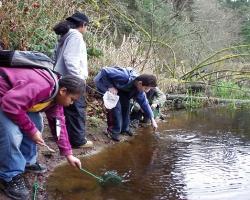Private schools across the country are experimenting with education models geared toward preparing students for life as much as academics.
For example, Vistamar school in Los Angeles, the curriculum “attempts to create more well-rounded students by translating ‘nonacademic skills, habits, and perspectives into academic achievement’ – in other words, the school is trying to include academic education in all of its programs and include ‘everyday life experience’ as a piece of their academic education.”
Vistamar has hired Dan Golden, as director of life planning and experiential learning – his job includes counseling students not just about classes, but about jobs, internships, community service, after-school activities, clubs, international travel, nutrition, safety issues, health issues, financial planning, and about cultivating a lifetime habit of personal reflection, as well as reading and learning.
In the past, community service was considered supplemental to the academic experience, but progressive schools are now using it as part of the academic curriculum, using it to teach students about diversity and life skills, as well as allowing them time to reflect on how their academic studies relate to real life issues. Vistamar’s curriculum includes overseas projects and service programs.
Creative attempts at increasing students’ competitiveness in the workplace and at universities are also being made. Fourteen seniors are creating what he calls e-portfolios, which will include collections of their best academic and creative work, as well as short commentaries on what they’ve learned from their experiences, whether it be slinging burgers at McDonald’s or as captain of the volleyball team.
The goals of such attempts are surprisingly revolutionary. One school’s office indicated their school’s goals move beyond education, adding that “the primary goal is to create a more just and compassionate world by transforming education.”
(LA Times, 1/2/08)
Do you view the church’s role as supplemental to, or in cooperation with, local schools? What can churches learn from these progressive schools’ reforms? What can schools learn from standing traditions within church youth groups?




